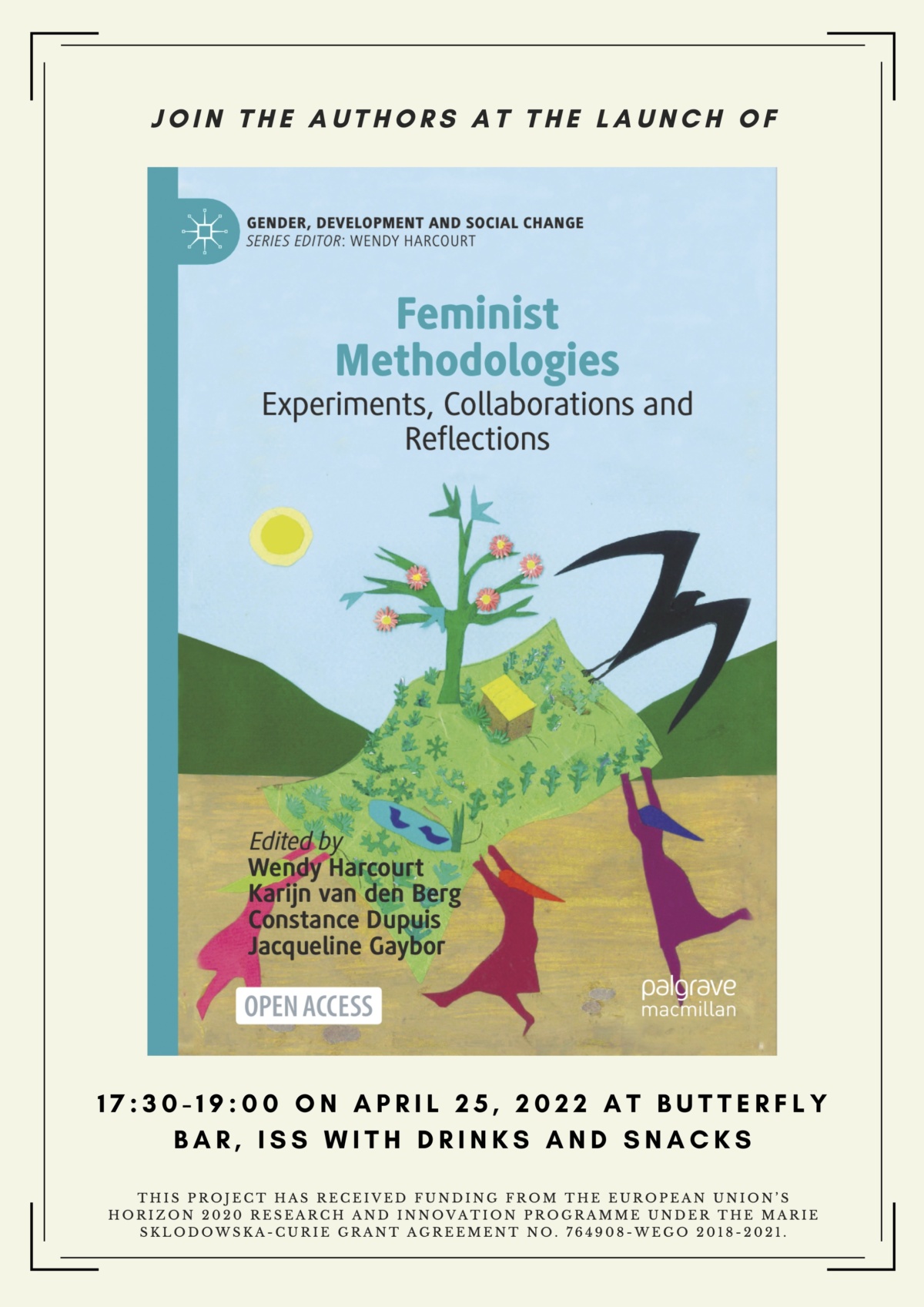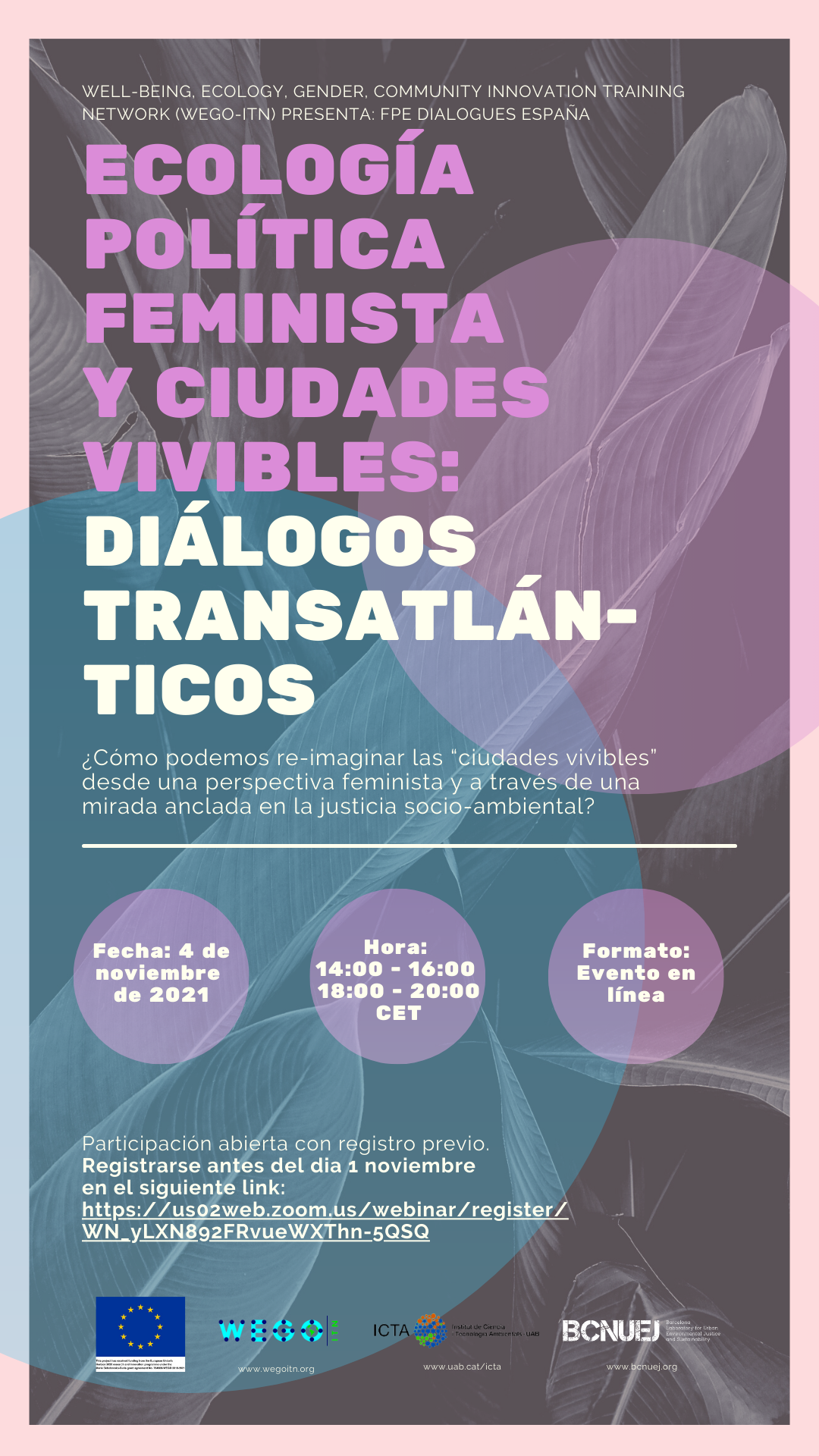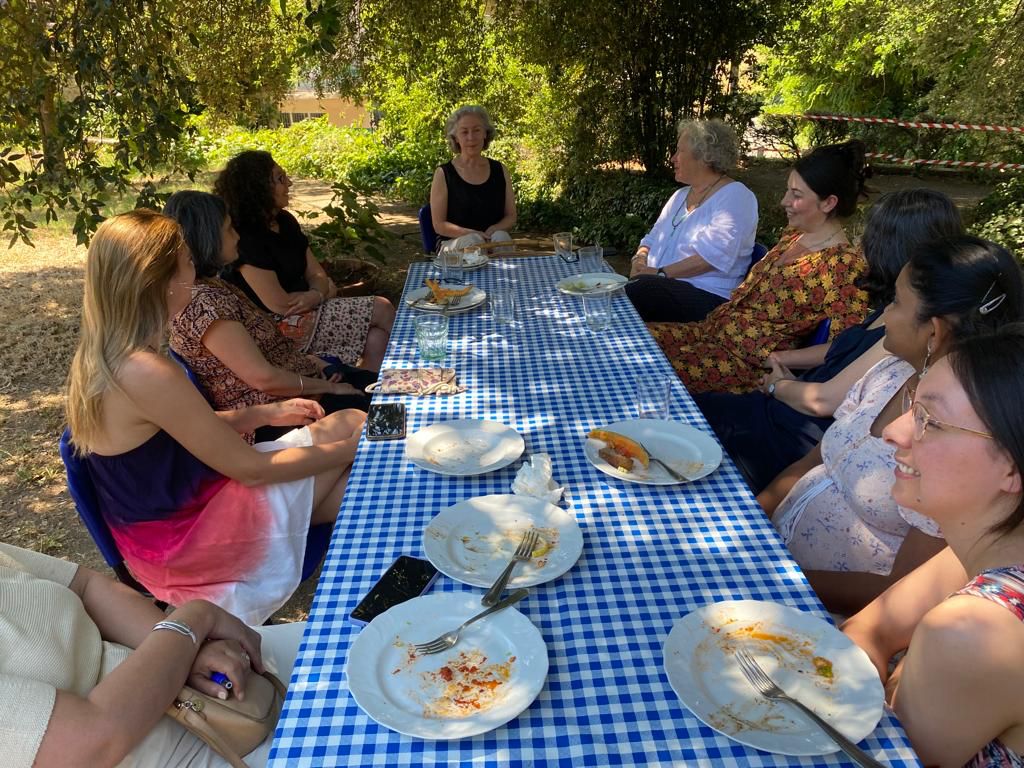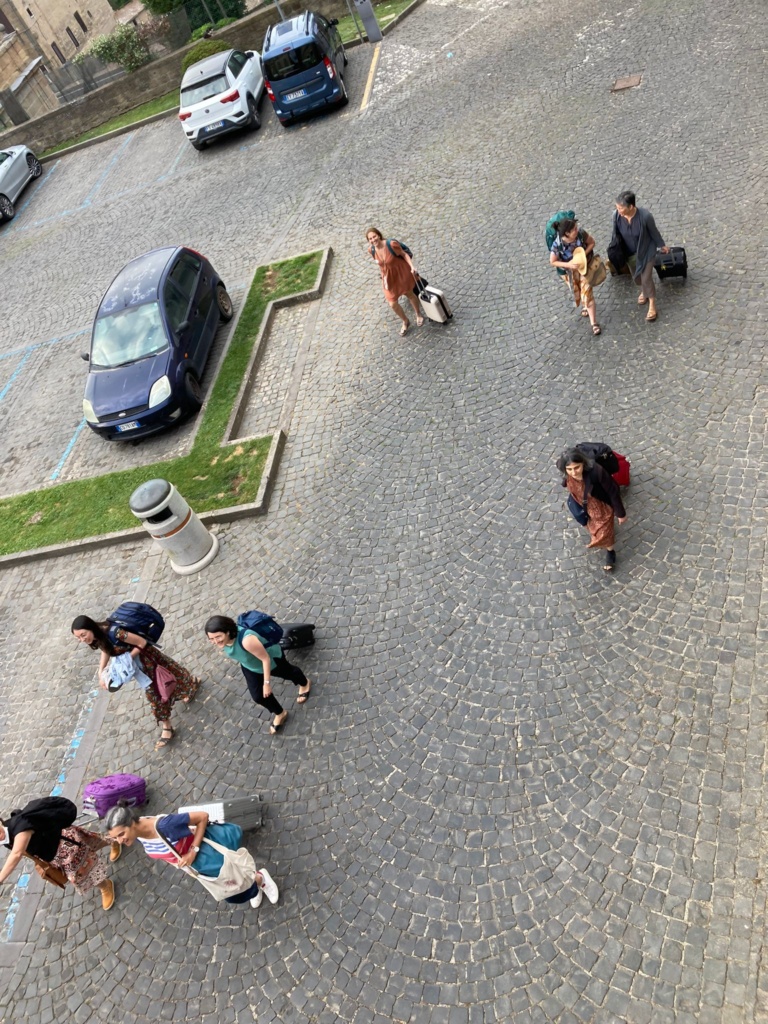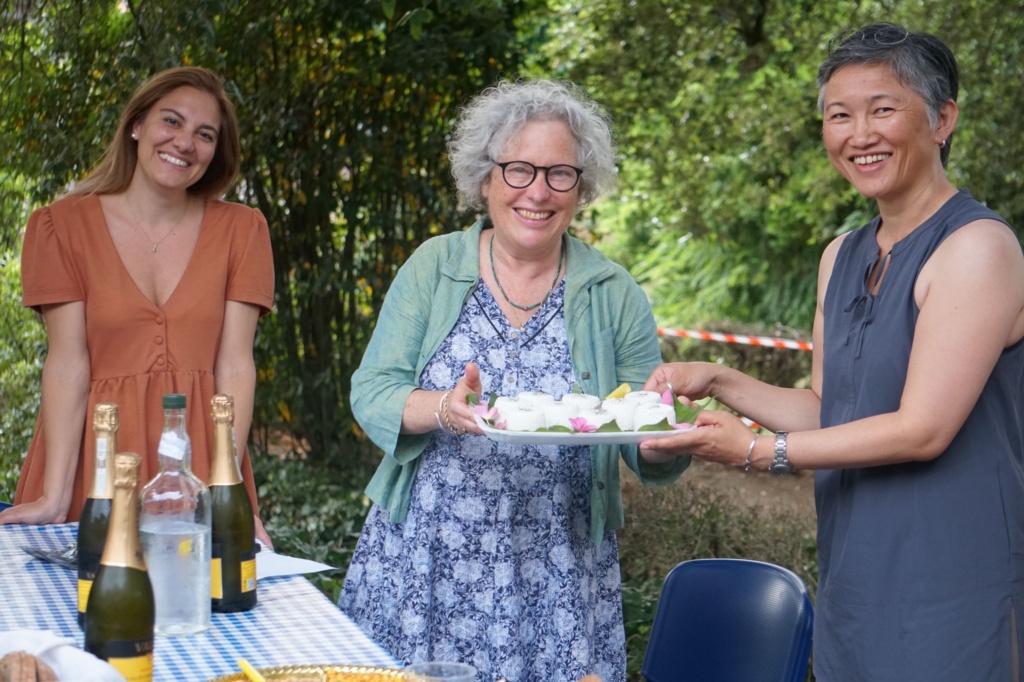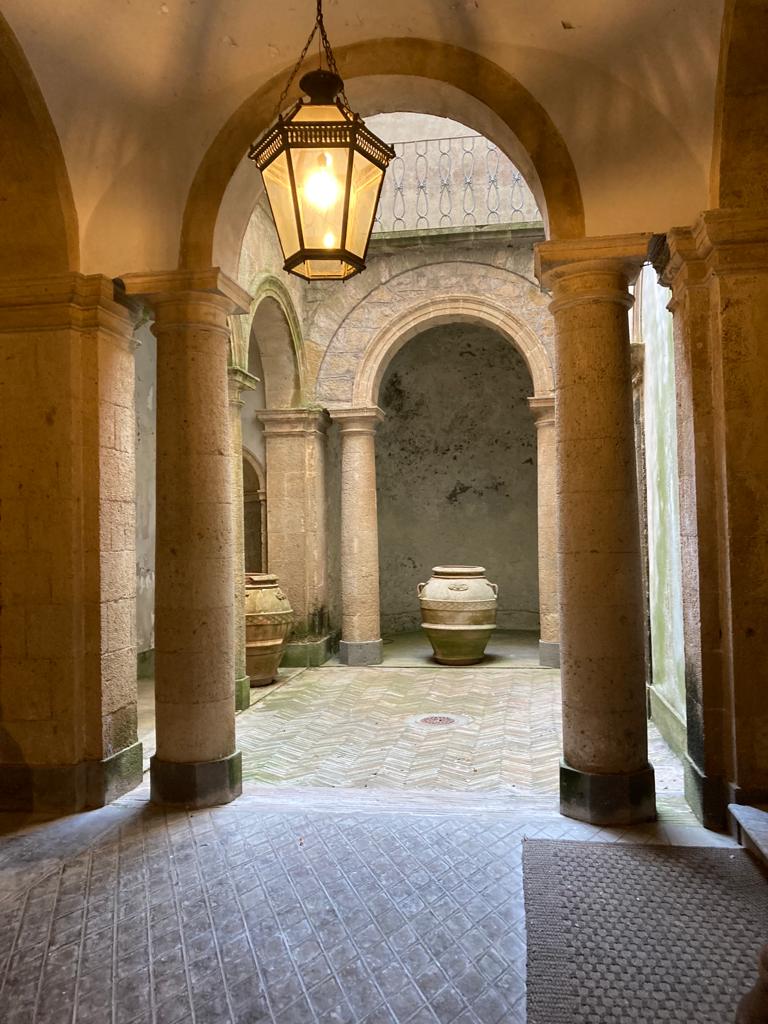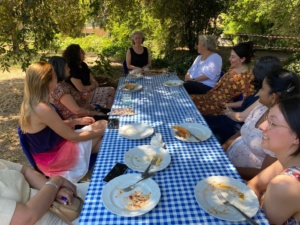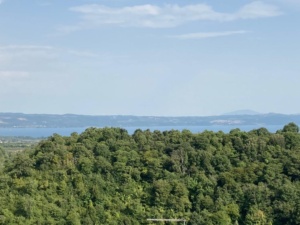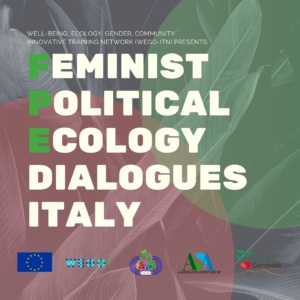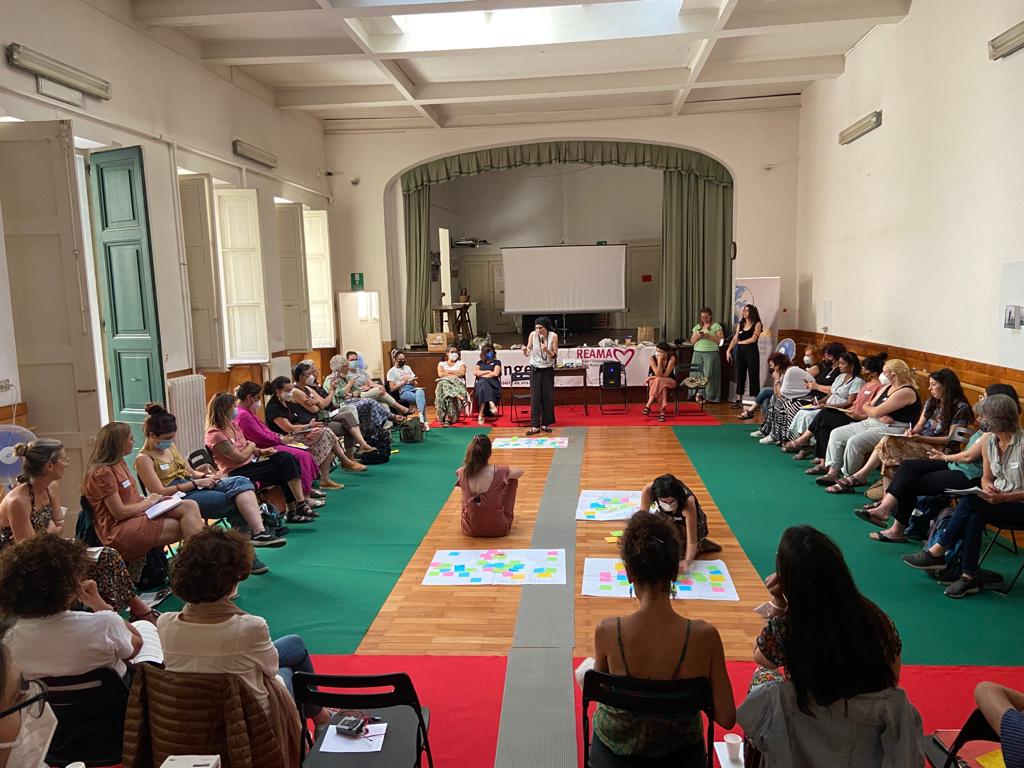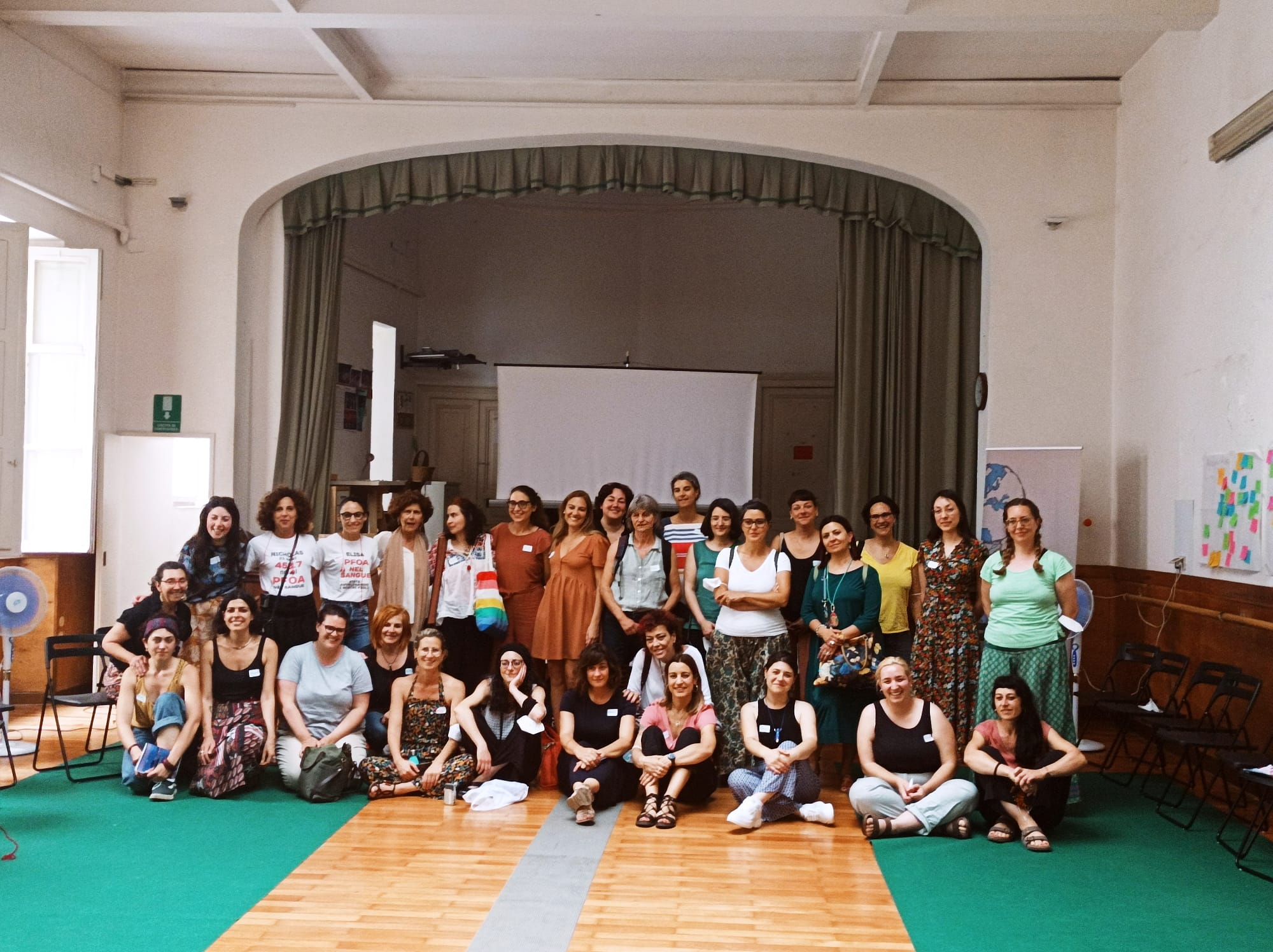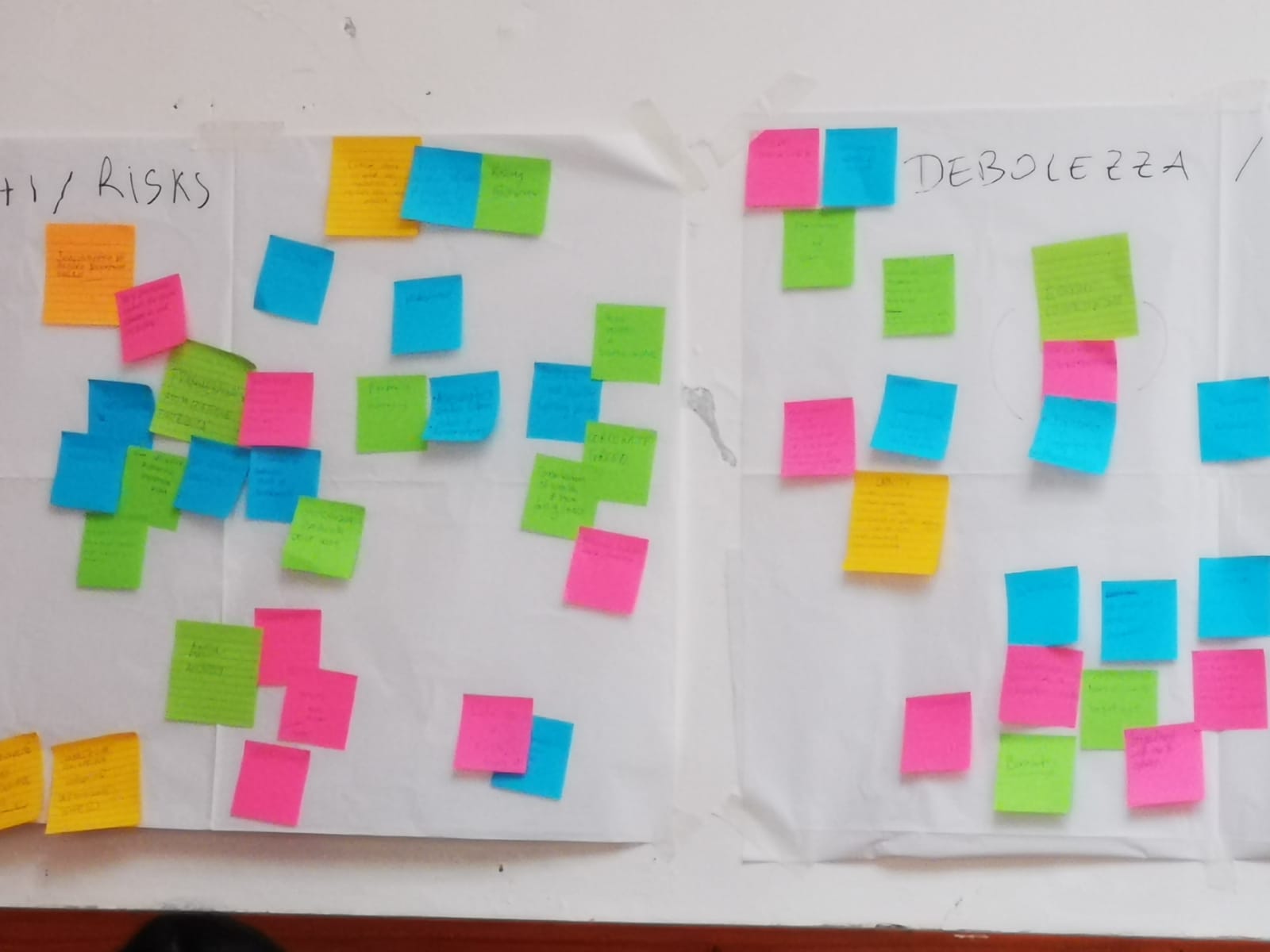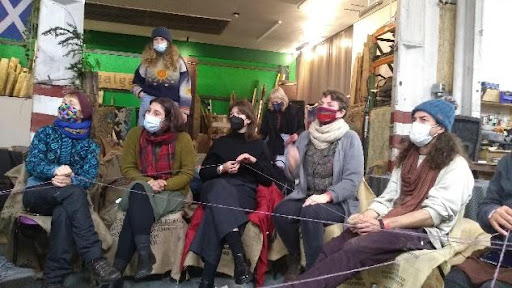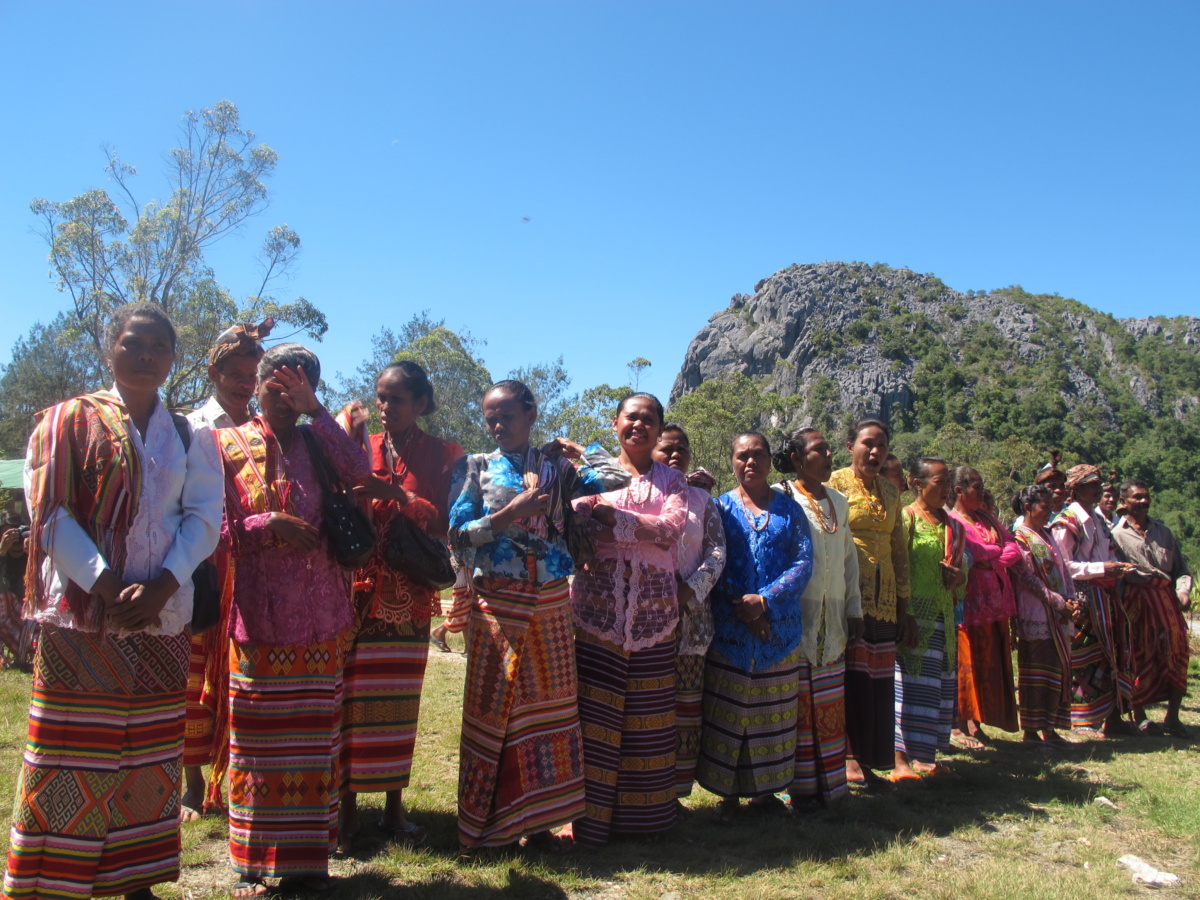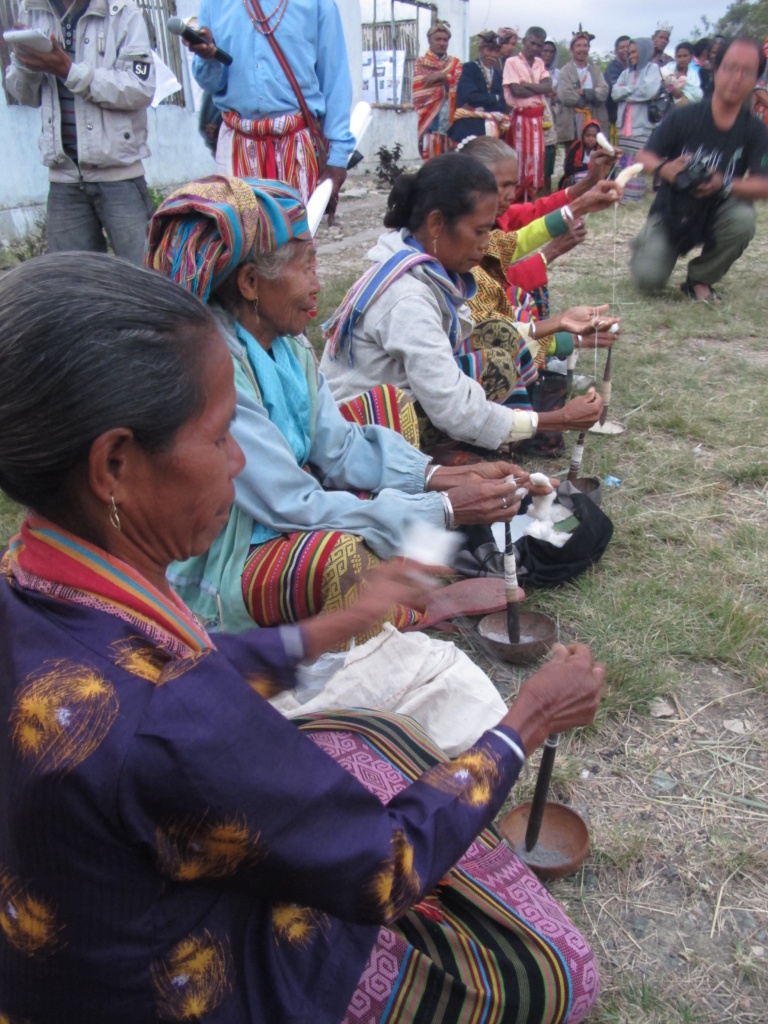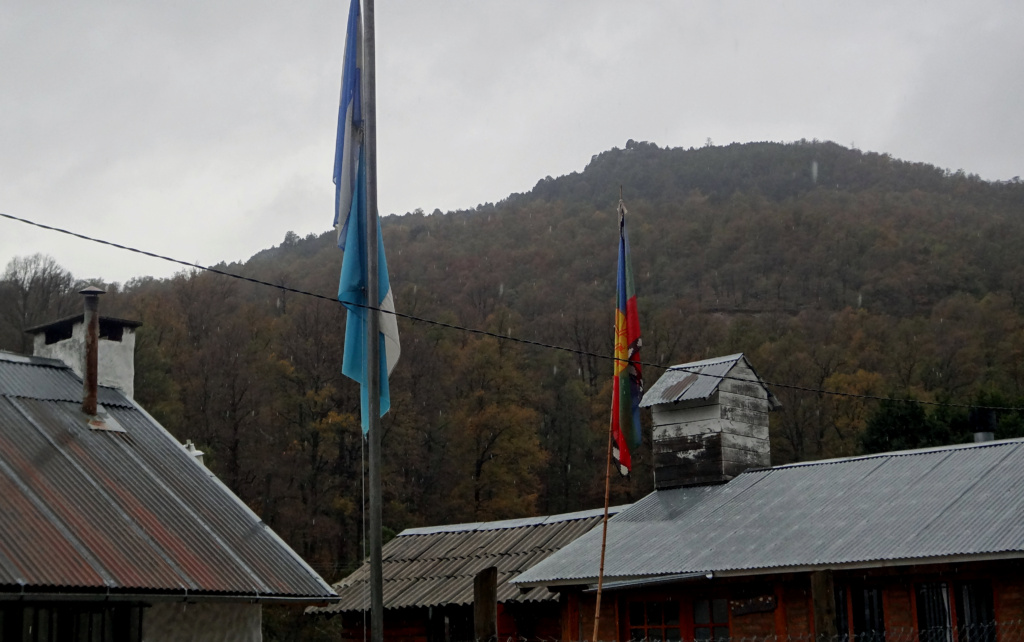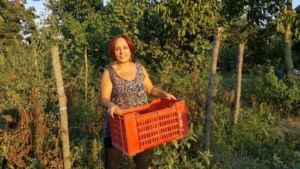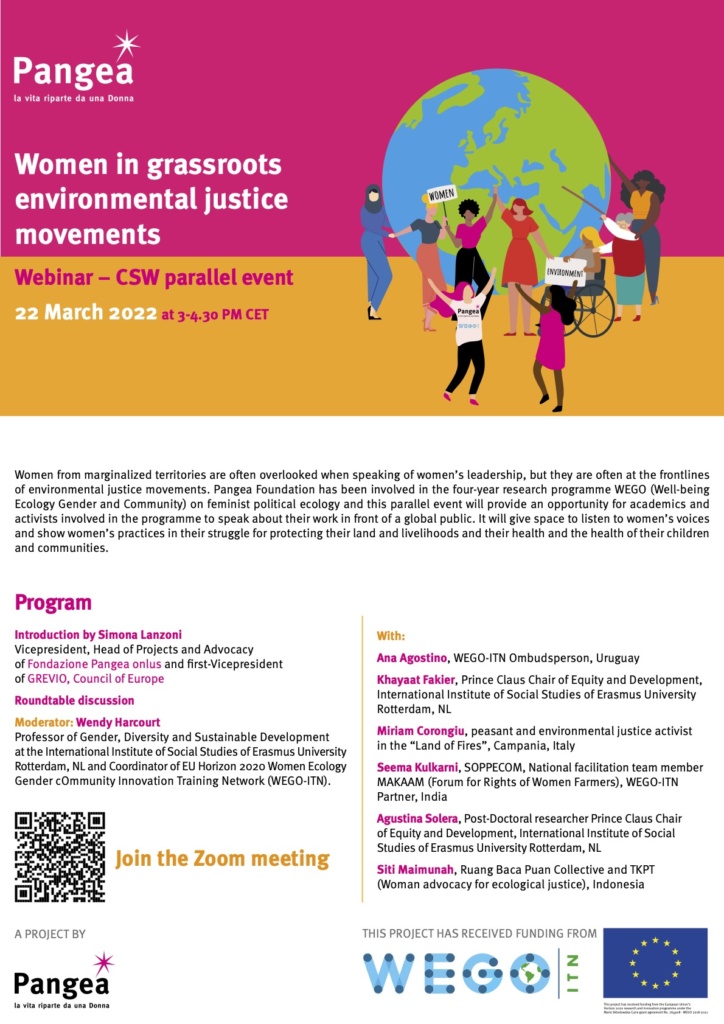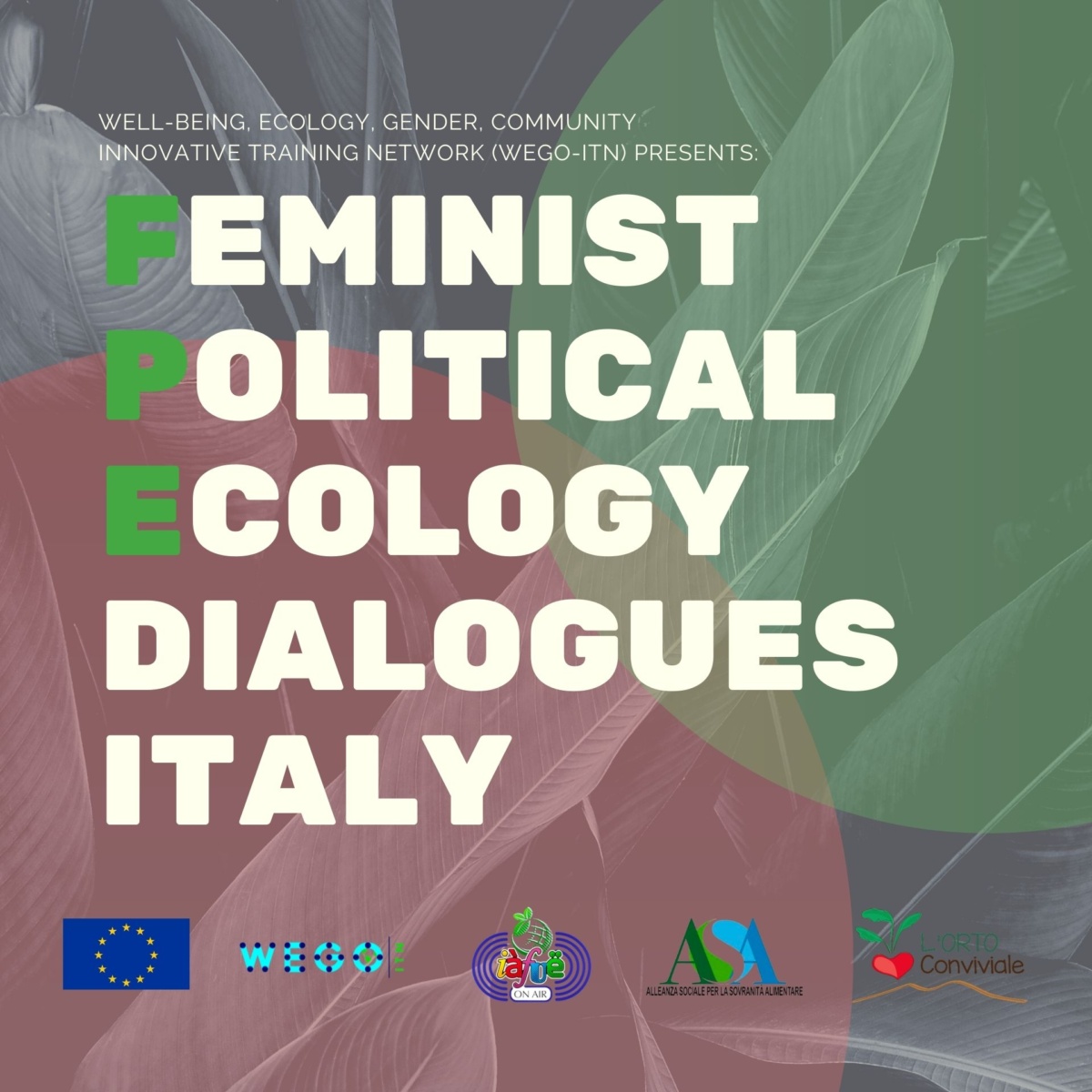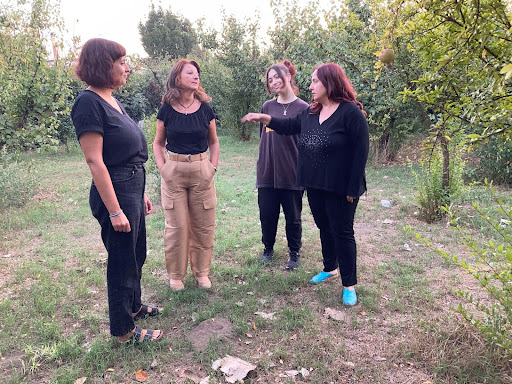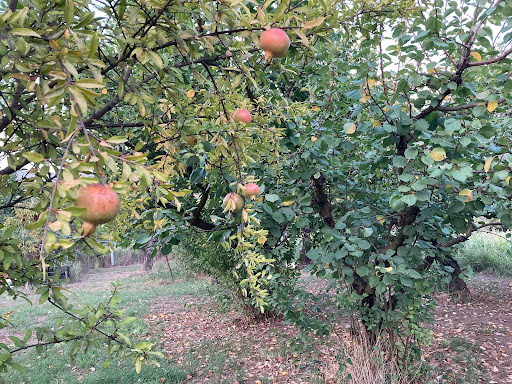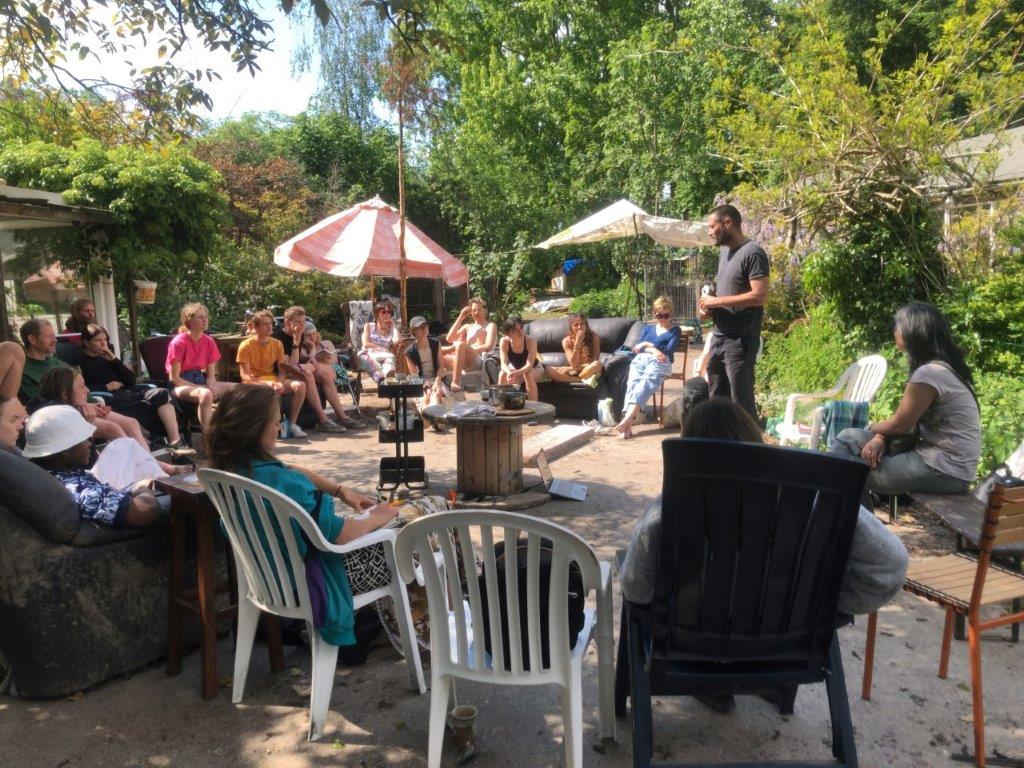LIST OF PUBLICATIONS AND OUTPUTS
You can find the full list of WEGO-ITN articles in journals here (pdfs).
To see the full list of WEGO-ITN’s conference presentations, click on the respective years: 2019 – 2020 – 2021 – 2022
WEGO-ITN books can be seen here.
Forthcoming 2022-2023
2022
Books
Articles
Padmanabhan, M., Dinkelaker, S., Hoffmann, M., Laksmana, D., Maimunah, S., Rudakova, E., Still, E., Trotier, F., (2022), ‘Principles of Critical Development Studies: A Minifesto‘. Asien
Videos
Irene Leonardelli, Eunice Wangari, Nick Bourguignon, Siti Maimunah, Marlene Becerra, ‘Unheard voices: feminist political ecology and the invisibilized stories of social change‘, 2022
Multimedia
Elmhirst, R., Owen, A., Ekowati, D., Hoover, E. and Maimunah, S. (2019-2022), Extracting Us-website.
Interviews
Siti Maimunah, ‘Tubuh Tanah Air’, Inside Indonesia, 16 April 2022
2021
Books
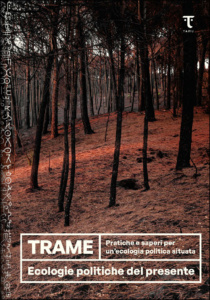
Daniela Allocca, Nicola Capone, Gaia Del Giudice, Nina Ferrante, Ilenia Iengo, Giuseppe Orlandini, Roberto Sciarelli, Daniele Valisen (2021), “TRAME – Pratiche e saperi per un’ecologia politica situata“, Tame Edizione.
Articles
Lyla Mehta, Wendy Harcourt (2021) “Beyond limits and scarcity: Feminist and decolonial contributions to degrowth“, Political Geography, 102411
Wendy Harcourt, Irene Leonardelli, Enid Still, Anna Voss, “Degrowth and Feminist Political Ecology and Decoloniality: Some reflections by the Wellbeing Ecology Gender and cOmmunities (WEGO) innovation training network“, DEVISSUES, vol. 23, n. 2, November 2021.
Siti Maimunah “Krisis Tidak Direspon dengan Pemulihan Tapi Diperdagangkan”, Siej.or.id, November 2021, (in Indonesian).
(2021) “Community gardening in Hellinikon as a resistance struggle against neoliberal urbanism: spatial autogestion and the right to the city in post-crisis Athens”, Greece, Urban Geography. (Aknowledgment)
Marlene Gómez Becerra and Esteban Gómez Becerra (2021) “Resistencia a la pandemia en el contexto del estrés hídrico en la Ciudad de México”, Ecología Política #62. Cuadernos de debate internacional
Glynn T, Maimunah S. “Unearthing conscious intent in women’s everyday resistance to mining in Indonesia”. Ethnography. August 2021. doi:10.1177/14661381211039372
Siti Maimunah; Sarah Agustiorini (2021), ‘Durian und die Kolonialität der Macht (Teil I)‘, Südostasien
Siti Maimunah; Sarah Agustiorini (2021), ‘Durian und die Kolonialität der Macht (Teil II)‘, Südostasien
Ankita Shrestha (2021), ‘When honesty is not the best policy: the ethical dilemma of sharing research findings‘, Undisciplined Environment.
Wendy Harcourt, Irene Leonardelli, Enid Still and Anna Voss (2021), ‘Degrowth and Feminist Political Ecology and Decoloniality: Reflections from the WEGO network‘, Undisciplined Environment
Eunice Wangari, (2021), ‘Gender and climate change adaptation responses in Kenya“, Institute of Development Studies.
Enid Still (2021), ‘Gunda, Babe and Val Plumwood: on Communicative Status, Ethical Relations with the More-than-human and Being Food‘, Undisciplined Environment
Interviews
Siti Maimunah for Mongabay Indonesia, “COP26 Tengah Berlangsung, Bagaimana Langkah Indonesia?“, November 2021. (In Indonesian)
Siti Maimunah for IndoProgress TV, “Wawancara IndoProgress: Krisis Iklim di Indonesia”, November 2021. (In Indonesian). Wawancara IndoProgress: Krisis Iklim di Indonesia – YouTube, Wawancara IndoProgress: Krisis Iklim di Indonesia – IndoProgress | Podcast on Spotify, Sejarah Perubahan Iklim adalah Sejarah Sistem Kapitalis – IndoPROGRESS
Siti Maimunah, Salsabilla Khoirunnisa, “‘Kita Butuh Perubahan Sistem, Bukan Perubahan Iklim’ – Project Multatuli, projectmultatuli.org, November 2021.
Conference papers
Becerra, M., (2021) ‘Violencias y Desigualdades en El Trabajo Delhogar Remunerado: El Testimonio de Mi Abuela‘, Conferencia Interamericana de Seguridad Social
Videos
Marlene Gómez, Dian Ekowati, Enid Still, Anna Katharina Voss, John Akerman, “Lecture by Prof. Katherine Gibson on Feminist Political Ecology“, 22 Mar 2021.
Marlene Gómez, Dian Ekowati, Enid Still, Anna Katharina Voss, John Akerman, “Situated knowledges. What does Feminist Political Ecology mean to us?“, 22 Mar 2021.
Marlene Gómez, Dian Ekowati, Enid Still, Anna Katharina Voss, John Akerman, “Who cares? Debating multiple feminist perspectives on care“, 22 Mar 2021.
Marlene Gómez, Dian Ekowati, Enid Still, Anna Katharina Voss, John Akerman, “What is our research about? Presenting WEGO-ITN’s PhD projects“, 22 Mar 2021.
Andrea Nightingale, Karin Hueck, “6 Common Mistakes in Writing Academic Journal Articles“, 4 May 2021.
Andrea Nightingale, Karin Hueck, “7 Tips for Writing Academic Journal Articles“, 4 May 2021.
Feminist Political Ecology Dialogues on Rethinking Food 1-2 July 2021: https://www.digital.uni- passau.de/en/stories/2021/wego-itn-fpe-dialogues/
Podcasts
Karin Hueck, “The Feminist Political Ecology Podcast“, Spotify, Soundcloud, 2021
Multimedia
Enid Still, Irene Leonardelli, Arianna Tozzi, Sneha Malani, “Troubling Waterscapes“, online exhibition.
2020
Books
Dupuis, C., Harcourt, W., and Gaybor Tobar, J (ongoing, ed.), Feminist methodologies – experience, and reflection in the series ‘Gender, Development and Social Change’, London: Palgrave.
Maimunah, S., ‘Doing’ PhD research in the Global South: ethicalities of care, reciprocity and reflexivity, by Maimunah, S., Still, E., and Milora, C. (UEA) first draft research ethics sponsored by EADI.
Resurrección, B. P., & Elmhirst, R. (2020). Negotiating Gender Expertise in Environment and Development: Voices from Feminist Political Ecology (p. 272). Taylor & Francis. Available December 21, 2020: https://www.routledge.com/Negotiating-Gender-Expertise-inEnvironment-and-Development-Voices-from/Resurreccion-Elmhirst/p/book/9780815386124
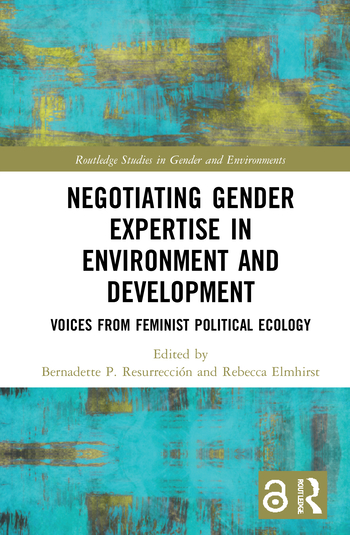
Chapters in books
Nightingale, A. and Harcourt, W. , ‘Gender, nature, body’ for the Handbook on Critical Agrarian Studies.
Padmanabhan, M. , Affects affecting feminist family fieldwork – staying collaboration troubled in Yogyakarta, Indonesia. In: Harcourt, W. ed. Feminist methodologies – experience, and reflection in the series ‘Gender, Development and Social Change’.
Sato, C. and Tufour, T.. Migrant women’s labour: sustaining livelihoods through diverse economic practices in Accra, Ghana. In: Gibson-Graham, J. K. and Dombroski, K. eds. The Handbook of Diverse Economies. Cheltenham: Elgar Publishing.
Articles
Kotsila, P., Hörschelmann, K., Anguelovski, I., Sekulova, F., Lazova, Y., ‘Clashing temporalities of care and support as key determinants of transformatory and justice potentials in urban gardens’, Cities.
Elmhirst, R. (2020) Dimensions of Political Ecology Annual Conference, February 2020. University of Kentucky, USA. Opening address on Beyond Handbook Tyrannies: disciplining the practice of Feminist Political Ecology.
Yousefpour, R., Nakamura, N., & Matsumura, N. (2020). Forest Management Approaches for Climate Change Mitigation and Adaptation: a Comparison Between Germany and Japan. Journal of Sustainable Forestry, 39(6), 635-653.
Maimunah, S., Uriep, M. (2020) “Business as usual” im Kohle-Revier“, Südostasien, DOI: https://doi.org/10.11588/soa.2020.1.11407
Südostasien
Siti Maimunah and Sarah Agustiorini (2020), ‘From the commons to extractivism and back: The story of Mahakam River in Indonesia‘, Hypothesis
Enid Still, Sandeep Kumar, Irene Leonardelli and Arianna Tozzi (2020), ‘A pandemic of blindness: uneven experiences of rural communities under COVID-19 lockdown in India‘, Undisciplined Environment.
Gustavo García-López, Irene Leonardelli and Emanuele Fantini (2020), ‘Reimagining, remembering, and reclaiming water: From extractivism to commoning‘, Undisciplined Environment
Conference/Workshop papers
Voss, A. K., Harcourt, W., and de Nooijer, R , ‘Relations of care: ethical food production in Flevoland, The Netherlands and Tuscia, Italy’, paper to be presented at the Sixth Annual Conference of the World-Ecology Research Network, Bonn, Germany, 28-30 July 2020.
Maimunah, Siti (2020) Co presenter with Tracy Glynn (University of New Brunswick Canada) at European Association of Social Anthropologis (EASA) Conference, Lisboa 2020, “No One Can Say the Karonsi’e Dongi Were Not Here”: A Photovoice Study of Gendered Resistance to Mining in Indonesia, 22-26 July 2020. https://nomadit.co.uk/conference/easa2020/paper/53165
Wendy Harcourt, Irene Leonardelli, Enid Still and Anna Voss (2021), ‘Degrowth and Feminist Political Ecology and Decoloniality: Some reflections by the Wellbeing Ecology Gender and cOmmunities (WEGO) innovation training network’.
Videos
Iengo, Ilenia (2020) Presentation of the Rural feminism collective “tutte giù per terra” for the Radio Iafue Perlaterra broadcast. https://www.facebook.com/watch/live/?v=374882170519780&ref=watch_permalink
Kotsila, Panagiota (2020) Què es l’ecofeminisme? (in Spanish). Interview @ Diari de Barcelona.
Maimunah, Siti (2020) A presenter at Webinar of Business and Technology Institute of Ahmad Dahlan Jakarta: Fishersfolk and Farmer in COVID-19 Situation, Who Care? 16 May 2020. https://www.facebook.com/watch/live/?v=292906565205431&ref=watch_permalink
Maimunah, Siti (2020) Participating in the Women Movement 2020 to Demand Justice for Women Raped in 1998 by reading a poem, in the minutes: 8.16 – 9. 42, 16 May 2020. https://www.youtube.com/watch?v=_qekFKjXiHY
Maimunah, Siti (2020) Co-reading a poem at Resister dialogue Cultural Night to celebrate Human Women Right Defender in South East Asia, 29 November 2020. https://www.youtube.com/watch?v=IhzQaLa0tds
Nakamura, Nanako (2020), ‘Multispecies commoning in aging rural Japan. A postcapitalist feminist political ecology’s perspective’, ‘Postcapitalist Feminist Approaches to Commons and Commoning in Rural India and Japan‘, Presentation at CERN online conference LiViAnA, November 2020.
Voss, Anna Katharina (2020) ‘Relations of Care. Ethics and Food Production in Europe’ by Rosa de Nooijer, Wendy Harcourt and myself presented at the Degrowth Vienna and Future For All conferences 2020.
Mainunah, Siti (2020), ‘Climate Controversies in SEA: Gender and Struggles over Coal in Indonesia‘, Stiftung Asienhaus.
Multimedia
Elmhirst, R., Owen, A., Ekowati, D., Hoover, E. and Maimunah, S. (2019-202s), Extracting Us-website.
Maimunah, S., Ekowati, D., Hoover, E., Owen. A. and Elmhirst, R. (2021), ‘Extracting Us – Extraction: Tracing the Veins’, Pollen PERC -Massey University.
Alice Owen, (2020), ‘Extracting Us’ Exhibition and Conversation Launches Online‘
Interviews
Iengo, Ilenia (2020) Interviewed Simona Lanzoni from Pangea Onlus and Stefania Prandi journalist, together with Anna Voss on the issue of violence against women in rural contexts for the radio programme Tutte giù per terra, part of the Radio Iafue Perlaterra broadcast: https://iafue.perlaterra.net/cassetta-attrezzi/tutte-giu-perterra-la-rubrica-delle-donne-contadine-3/
Iengo, Ilenia (2020) Interviewed Stefania Barca on the Care Income Campaign for the Non una di Meno radio programme. https://www.mixcloud.com/NAPOLINUDM/le-scappate-di-casa-31-maggio-6a-puntata/
2018-2019
Articles
Clement, F., Harcourt, W., Joshi, D., and Sato, C. 2019, ‘Feminist political ecologies of the commons and commoning’, International Journal of the Commons,vol. 13, no. 1, pp. 1–15, https://www.thecommonsjournal.org/articles/10.18352/ijc.972/.
Elmhirst, R. 2018 ‘Ecologías políticas feministas: perspectivas situadas y abordajes emergentes [Feminist Political Ecologies – Situated Perspectives, Emerging Engagements] Ecologia Politica,No.54. Special Issue on Ecofeminism (“Ecofeminismos”), https://www.ecologiapolitica.info/?p=10162.
Nightingale, A. J., Lenaerts, L., Shrestha, A., Lama ‘Tsumpa’, P.N., Ojha, H.R. 2019, ‘The material politics of citizenship: struggles over resources, authority, and belonging, in the new Federal Republic of Nepal’. In:The special issue on Social and Political Transformation in Nepal, South Asia: Journal of South Asian Studies,vol. 42, no. 5, pp. 886-902, https://www.tandfonline.com/doi/full/10.1080/00856401.2019.1639111.
Gerber, J.F. 2020, ‘Degrowth and critical agrarian studies’, The Journal of Peasant Studies, Vol 47, issue 2, pp 235-264, https://www.tandfonline.com/doi/full/10.1080/03066150.2019.1695601
Akbulut, B., Demaria, F. Gerber, J.F., Martinez-Alier, J. 2019, ‘Theoretical and political journeys between environmental justice and degrowth: what potential for an alliance?’ Ecological Economics.
Harcourt W. ‘Feminist political ecology practices of worlding: art, commoning and the politics of hope in the classroom’, International Journal of the Commons,vol. 13, no 1: 153–174, https://www.thecommonsjournal.org/articles/10.18352/ijc.929/.
Sato, C., Alarcon, J. M.S. 2019, ‘Toward a postcapitalist feminist political ecology’s approach to the commons and commoning’, International Journal of the Commons,vol. 13, no. 1, pp. 36-61,https://www.thecommonsjournal.org/articles/10.18352/ijc.933/.
Leonardelli, I. (2019), ‘Between drought and monsoon: the embodied hardship of seasonal work in Maharashtra’s sugar cane plantations‘, Entitle Blog. Alice Owen, Anna Voss, Constance Dupuis and Nick Bourguignon, (2019), ‘Summer School Bolsena: Notes from a Feminist Writing Retreat’, Undisciplined Environment
Books
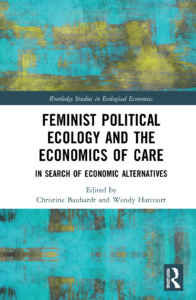
Baudhardt, C. and Harcourt, W. (eds.) 2019, Feminist Political Ecology and the Economics of Care. In Search of Economic Alternatives.Routledge, London. ISBN: 9781138123663.
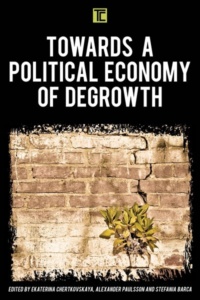
Chertkovskaya, E., Paulsson, A. and Barca, S. (eds.) 2019, Towards a Political Economy of Regrowth. Rowman & Littlefield International. ISBN: 9781786608956
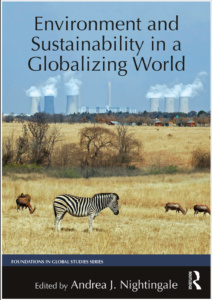
Nightingale, A.J. (ed.) 2019, Environment and Sustainability in a Globalising World. Routledge. ISBN 9780765646446
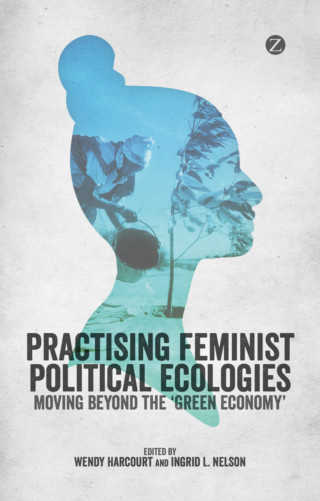
Harcourt, W. and Nelson, I.R. (eds.) 2015, Practising Feminist Political Ecologies: Moving Beyond the ‘Green Economy‘. Zed Books ISBN 9781783600885
Book reviews
Gómez Becerra, M., Bauhardt, C. and Harcourt, W. (eds.) 2019 Feminist political ecology and the economics of care. In:Search of economic alternatives. Oxon/New York: Routledge, 2019. – 298 pp., ISBN: 978-1138123663. Germany: Published in the intern bulletin of the Humboldt Universität zu Berlin, https://www.gender.hu-berlin.de/de/publikationen/gender-bulletin-broschueren/bulletin-info/info-59/bulletin-59-finale-gesamtdatei-deckblatt.pdf,pp.74-79.
Papers presented in conferences
Mehta, L. 2019, ‘Keynote speaker: Climate change, uncertainty and the city: challenges and opportunities for transdisciplinary co-production and transformation’, paper presented at the University of Sheffield, Sheffield, UK, 17 October 2019, https://www.youtube.com/watch?v=uJnIpPts-gs.
Dupuis, C., and Harcourt, W. 2019, ‘Care and the commons in troubling times: confronting whiteness’,paper presented at the European Conference on Politics and Gender, Amsterdam, The Netherlands, 4-6 July 2019.
Mehta, L. 2019, ‘: Keynote speaker: The Political Ecology of climate change, uncertainty and transformation in marginal environments’, paper presented at the Political Ecology in Asia conference, Bangkok, Thailand, 11 October 2019, https://www.csds-chula.org/announcement/2019/9/25/full-agenda-political-ecology-in-asia-plural-knowledge-and-contested-development-in-a-more-than-human-world-bangkok-10-11-october-2019.
Sato, C. and Bergeron, S. 2019, ‘Rethinking the socio-ecological relations of care and commoning: engaging Feminist Political Ecology and Feminist Global Political Economy approaches to social reproduction’, paper presented at the European Conference of Politics and Gender, Amsterdam, The Netherlands, 4-6 July 2019.
Still, E. 2019, ‘Beyond networks and chains, towards webs of relation: food, belonging and care in the city’, paper presented at the RC21 Delhi: Informal networks, urban coalitions and governance in South Asia, New Delhi, India, 18-22 September 2019.
Shrestha, A. 2019, ‘Nation without government: how is governing achieved in Nepal?’, paper presented at the sixth annual Governance at the Edge of the State Conference, Copenhagen, Denmark, 28-30 August 2019.
Bulletin
Sarah Agustio & Siti Maimunah, ‘Antara Kampret, Karst, Karbon dan Politik Gang’, Article on Mongabay
Siti Maimunah, ‘Menjaga Komuning, Praktik Kelola Air Komunal di Sangkulirang-Mangkalihat’, Article on Mongabay


